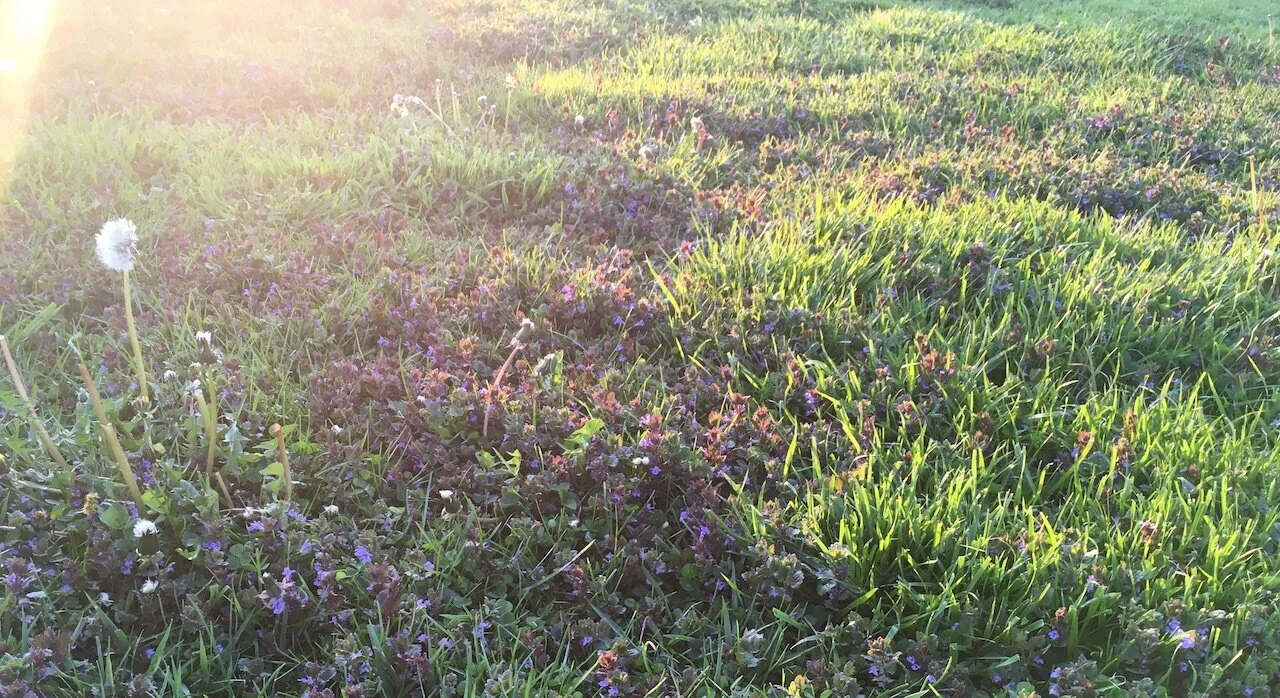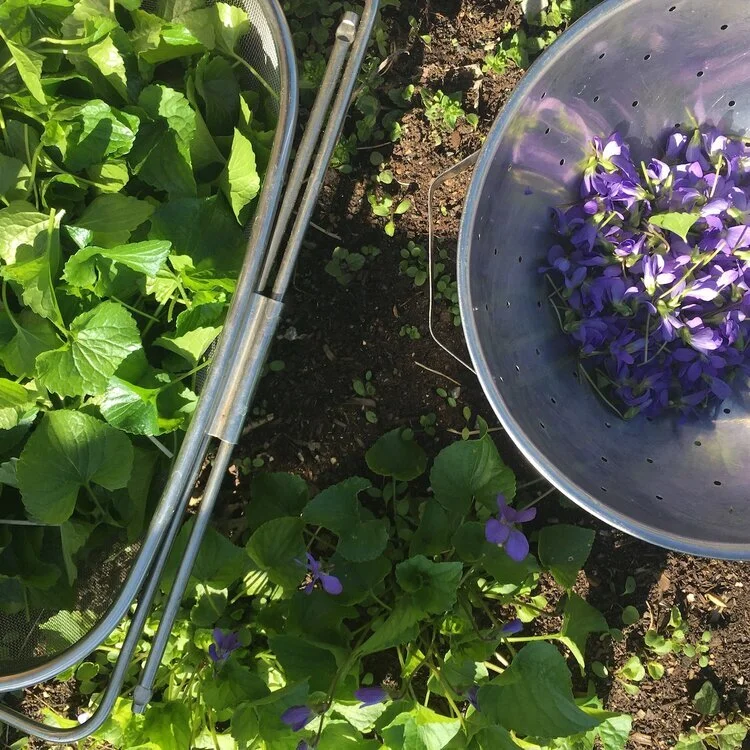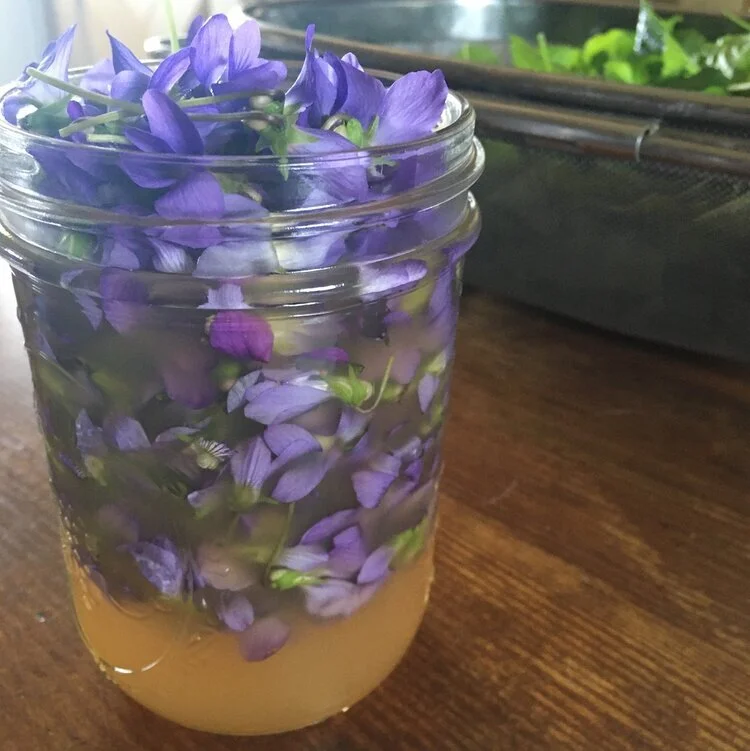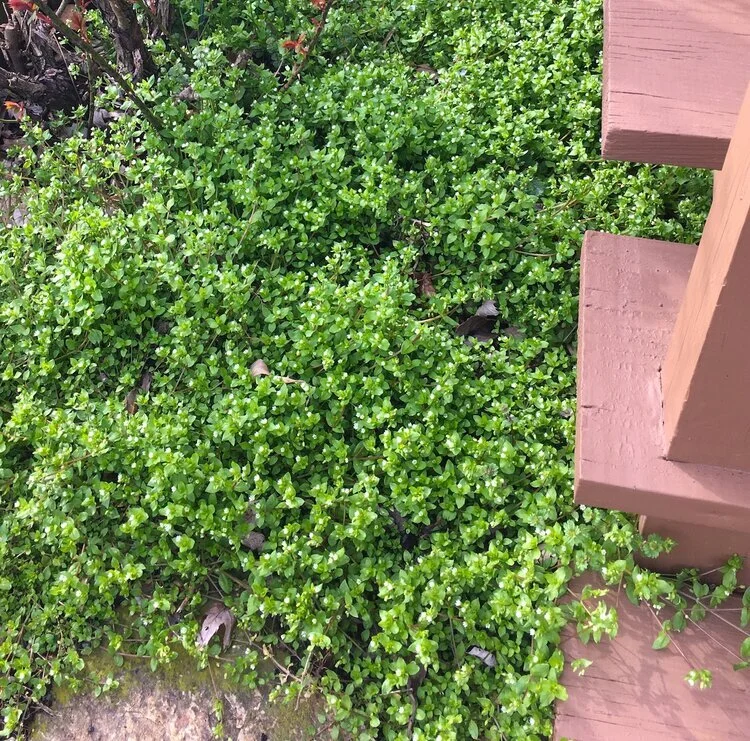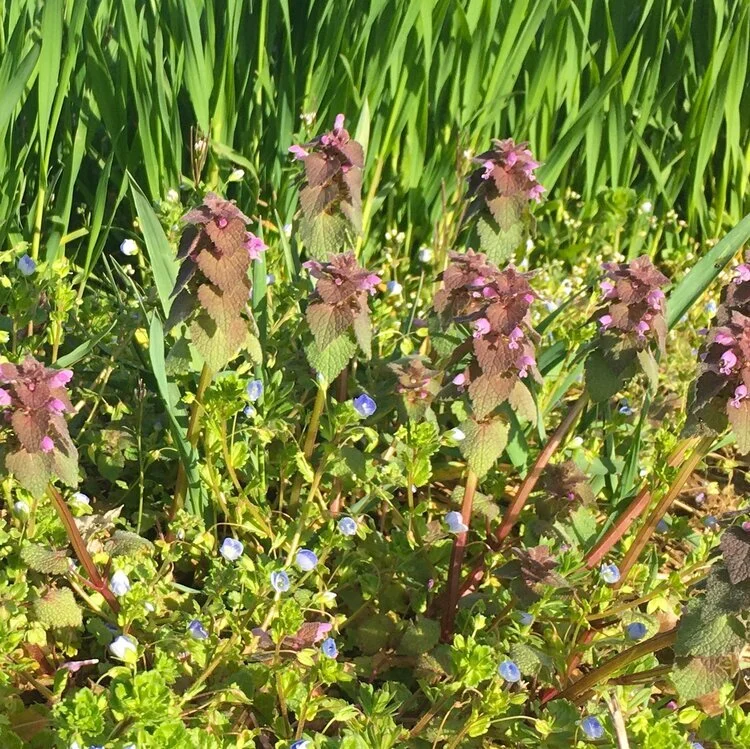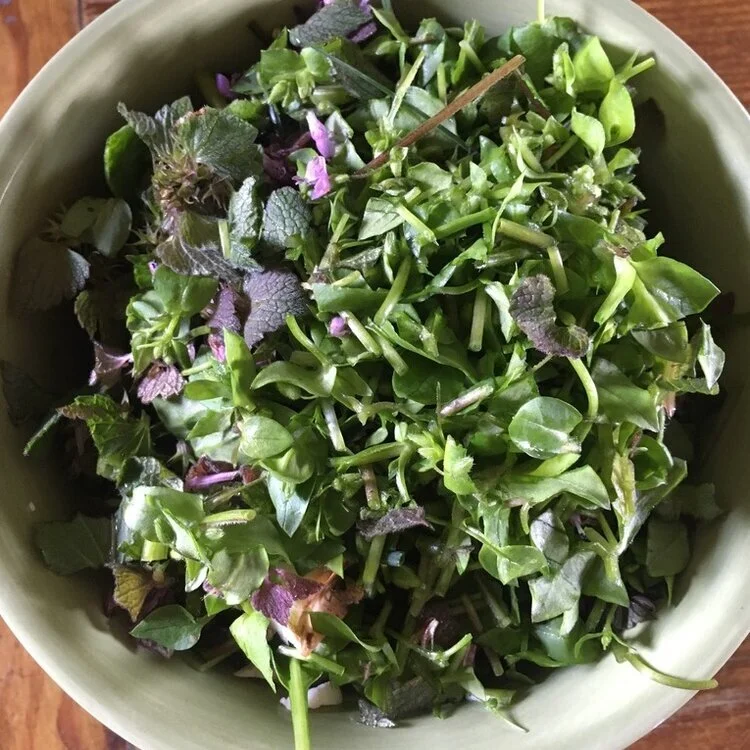My green allies
I’m always fascinated by what’s taking over the yard.
Every year, ground ivy seems to take the lead - even by now, the lawn is rendered almost fully purple (and yay, ‘cause the bees love it!).
Oy! A sea of violets…
This year, violets have been filling up my flower bed.
It’s been some years since I gave over to harvesting weeds, but as I seem to have a bit more time on my hands these days, I spent a luxurious hour this past week practicing my nutritious ‘weeding’ movement repertoire, while handpicking delicate violet leaves and blossoms.
Violets (viola odorata) in case you didn’t know, have many medicinal uses, some documented as far back as Plato.
The leaves and blossoms can be added to salads or made into tea.
They are said to nourish the liver, gall bladder, urinary and digestive systems, particularly if one is undergoing aggressive cancer treatment. Violet leaf infusion can help ease inflamed throats and bronchial surfaces, as well as other heat-related congestion type symptoms: cough, congestion, shortness of breath, sore throat and tonsillitis.
The flowers - which provide a delicate sweetness - can be sprinkled on anything, added to drinks, frozen in ice cubes, or transformed into syrup. I am steeping a bunch in apple cider vinegar, which after only a few days, is taking on a lovely violet hue.
violet harvest, early may
violet vinegar - day 1
violet vinegar - day 4
With the fresh leaves, I made one sample cup of tea, and then dried the rest in my attic: leaves laid in a single layer atop a floursack cloth pinned to a wooden clothes dryer rack - a method I learned from Sue Hess.
Two other early spring ‘weeds’ - chickweed and dead nettle - have also made into the kitchen… though not too far past a tossed salad.
I would probably eat chickweed anyway - its succulent tenderness is such a joy to my tongue.
But its many healing properties make it even more irresistible. Found everywhere in the cool spring, and then mostly in shady, moist places once summer arrives, chickweed is high in saponins which increase the absorption of nutrients from the digestive mucosa.
Chickweed is high in trace minerals, calcium, vitamin C, and can also be helpful with inflammatory conditions that accompany colds and flu.
Chickweed is best eaten raw (never cooked or dried), though a tincture can be made from the fresh leaves. If I’m not just grazing in my backyard, I’ll toss it in salads, on sandwiches, or you can make a pesto - straight up or to augment basil and other greens.
Dead nettle (not to be confused with stinging nettle - which, while also edible, should be cooked or dried first to remove the ‘sting), is a familiar ‘weed that I was in the midst of yanking out of my garden when I thought maybe I should look up what value it might have.
Lo and behold, I found this article, touting its vitamin C content, and anti-inflammatory properties, among other things. (Bees also luuuuv the flowers, so, please let them grow if you can!)
The taste may not appeal to everyone at first (it’s NOT minty, though it’s in the mint family), and the texture even less.
I like it - very ‘green’, like spinach - but you are well aware that you’re eating something that just came out of the ground.
Chickweed!
Dead nettle
Weed salad!
As you can see here, I just went commando - throwing it as is in a salad with some oil and vinegar.
But you may want to experiment adding it to pesto, or soups, or something that hides the flavor until you acclimate.
These prolific companions are also high in vitamin C and many trace minerals, allowing me for now, to ditch the lab-concocted supplements in favor of these nutrient-packed ‘green allies’*.
The nourishment is complete - between the movement and effort I put into the harvest, the feeling of the sun on my back, and the chill of the spring morning earth coming up through my bare soles; my attention divided between selection of each flower, my occasional whispers of thanks, and the busyness of monkey mind; and the plants’ gifts in themselves - the culmination of soil, moisture and mystery - rising from dormancy to bloom in answer to its attraction to the sun.
This nourishment cannot be packaged. Or, improved upon, in my opinion.
So, who are your allies?
(*”green allies” - a term herbalist Susun Weed uses to describe our helpful and supportive weed friends)
